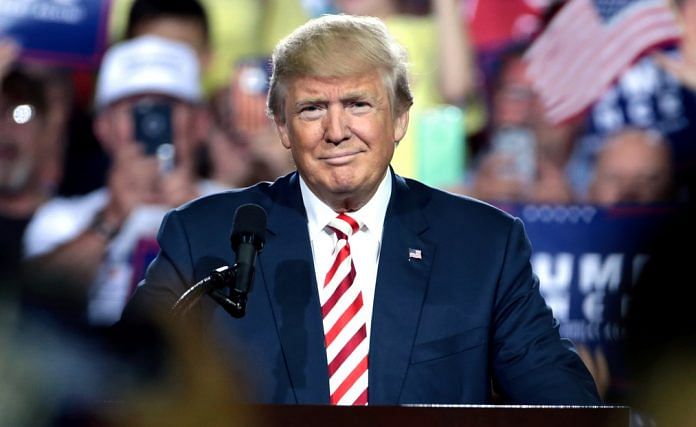When Pakistan Prime Minister Imran Khan visits Washington this week, he will have the benefit of meeting an American president with a short memory.
Just a year and a half ago, Donald Trump tweeted that the U.S. “has foolishly given Pakistan 33 billion dollars in aid over the last 15 years, and they have given us nothing but lies & deceit.” He then announced a suspension of that aid until Pakistan ended its relationship with various terrorist groups.
Now Trump is changing his tune. Last week he welcomed Pakistan’s arrest of the leader of the terrorist group that went on a four-day killing spree in Mumbai in 2008, despite the fact that he has been arrested and released several times before. Trump tweeted that the arrest was the result of pressure building over the last two years.
Some of this change in tone is to recognize the baby steps Islamabad has taken to address longstanding U.S. concerns. Khan’s government recently announced that it was investigating the funding of some terrorist groups the U.S. has long accused Pakistan’s military intelligence service of sponsoring.
Nonetheless, these steps are not nearly enough. Dr. Shakil Afridi, the heroic Pakistani physician who helped the CIA identify Osama bin Laden before the 2011 raid that killed him, remains in a high-security prison. According to recent reports, he is severely underweight.
A more powerful reason that Trump is changing his tune is that he needs Pakistan’s cooperation for his plan to withdraw U.S. forces from Afghanistan. Since the fall, U.S. special representative Zalmay Khalilzad has been negotiating what he says will be a peace agreement with the Taliban, whereby the group shares power with the elected government in Kabul. Nonetheless, the Taliban have continued a terror rampage against civilians and the military, killing a U.S. service member this month. The Pakistanis have enough short-term leverage with the Taliban to get them to allow an orderly exit of U.S. forces fighting America’s longest war.
In this respect, one might argue that a little amnesia can go a long way. Isn’t the pageantry of a White House visit a small price to pay for tamping down the Taliban?
Maybe so — but this logic also exposes the foundational problem with the U.S.-Pakistani relationship. Pakistan’s military and intelligence agencies play a double game. Its leaders give lip service to the wider war on terrorism when in Washington. Meanwhile its operatives in Southeast Asia continue to supply and fund the terrorists the U.S. has been fighting.
Husain Haqqani, a former Pakistani ambassador to Washington and now a fellow at the Hudson Institute, said Pakistan’s support for the Taliban is evident even in the peace negotiations. The planes that fly Taliban leaders to negotiations in Doha, he said, are provided by Pakistan’s military intelligence service.
Thomas Joscelyn, a senior fellow at the Foundation for the Defense of Democracies and co-founder of the Long War Journal, said the olive branch from Trump counts as a reversal of his administration’s policy. “The strategy that Trump endorsed in August 2017 was intended to put pressure on Pakistan to try to change their behavior,” he said. Yet to this day, the Pakistani military continues to support senior Taliban leaders as well as the deadly Haqqani network in the border region near Afghanistan.
All of which raises the question: Why should anyone believe the Pakistanis this time around?
Trump’s advisers would say that the meeting offers an opportunity for Pakistan to get out of the president’s doghouse. A senior administration official told reporters Friday that Khan could agree to make permanent his government’s recent gestures toward counterterrorism. What’s the harm in trying a softer touch after taking a hard line? The Pakistanis have proved they can be spoilers when it comes to Afghanistan. A little pomp and flattery could persuade them to be more constructive.
That’s the positive spin, anyway. The deeper problem is that the U.S. has no real leverage in Afghanistan. Khan knows this, and so does the Taliban. Trump has made it clear that he wants U.S. forces out of the country, the sooner the better. Even if the Pakistanis can coerce or persuade their Taliban allies to back off until the U.S. leaves, what will stop them from violating a peace agreement after the U.S. is gone?
Also read: Trump writes to Imran Khan seeking help to bring Taliban to negotiating table



